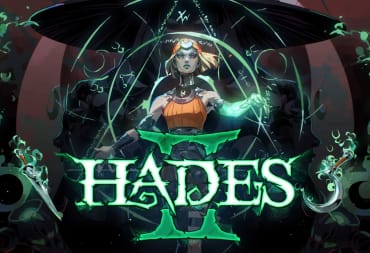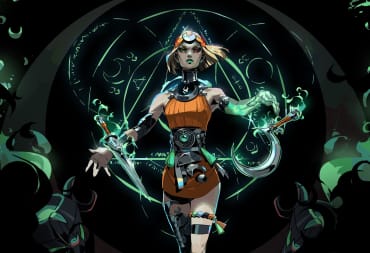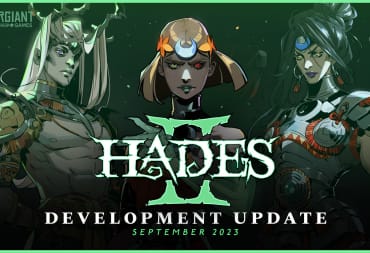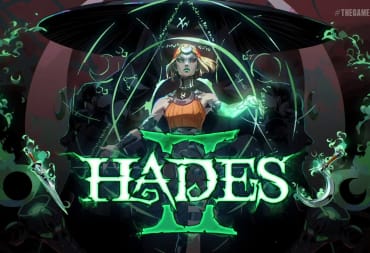With Hades II now available in Early Access, my colleagues have been tucking into Supergiant Games' first sequel. But while some were coming to terms with new weapons, boons, and some new crafting elements, I charged headfirst into seeing the new Hades II boss fights.
And an early one blew me away thanks to its playful nature and theatrical spectacle. It stuck in my head like a siren song that just wouldn't let go.
Note: This article contains spoilers for a Hades II boss battle that takes place beyond the first area.
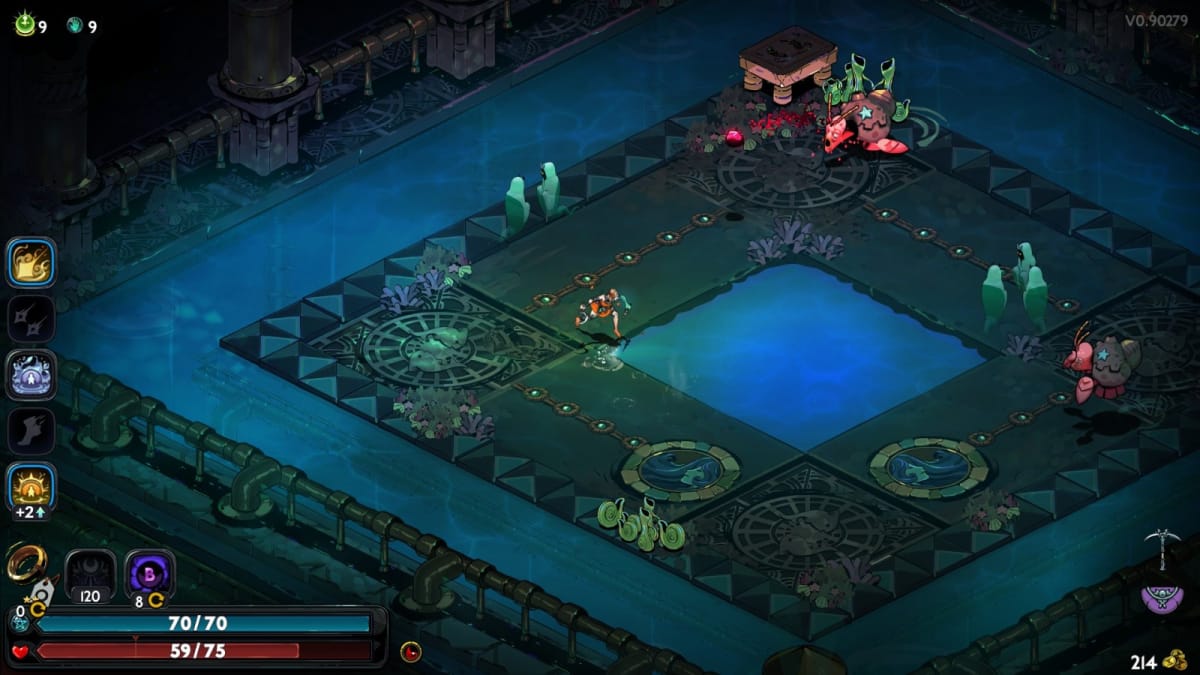
The Hades II Boss Fight Against Scylla and The Sirens
After countless attempts, you finally get through the first boss fight and enter a new level called Oceanus. It is this industrial maze of pipes, drains, and water. It is such a visually distinct level compared to anything in this game or its predecessor.
But if you stop and listen, there appears to be music echoing through its depths. Lyrics can be heard. This music slowly gets louder and fuller as you go through each floor. Finally you reach the door to the boss. It looks less like the entrance to a horrible arena but more a venue for a show. You can even see a line of shades and two bouncers.
Since Hades II is heavily based on Greek mythology, it is not a surprise that the boss of this floor is a trio of sirens. A drummer, a guitarist, and a lead singer formed the group Scylla and The Sirens. The cherry on top? The boss arena looks like a sound stage.
Then the boss fight begins. And it goes from great to transcendent within seconds. The boss music is a rock ballad, complete with lyrics. As each siren falls in the fight, their part in the song drops.
Take out the drummer? Now it's just guitar riffs and backup vocals. Take out the guitarist next? It's just the lead singing solo. Then there's the second phase where one of the sirens is marked as the Featured Artist, which makes their part in the song more prominent. Lastly, it culminates in applause when the band is slain, ending the entire level on a high note.

Hades II and Supergiant Games' Musical History
On paper, the Hades II Scylla boss fight is just another entry in a growing trend. Games have been playfully implementing music into their core design for a while.
There are rhythm action titles like Metal: Hellsinger and Hi-Fi Rush that turn fighting to the beat into a main mechanic. Stray Gods is an interactive stage musical where levels and roleplaying decisions are treated as elaborate musical numbers. The in-development musical platformer Billie Bust-Up blends energetic level design with catchy Disney Renaissance-esque compositions. There's even a similar musical boss fight in Baldur's Gate 3 drenched in theatrical drama.
Yet, by the time this boss fight was over, I was pumping the air in triumph. Not only was it a spectacle of a battle, it felt like an acknowledgment by Supergiant Games of how important music has been to their entire body of work, letting it take centerstage.
Music has been part of Supergiant's releases since their debut in 2011. Darren Korb's command of mixing different genres brings vibrant joy to each game's score. Electric bluegrass, trip hop, symphonic rock; Korb's music blurs the lines between these styles. But it is the tracks involving lyricist Ashley Barrett where the music informs narrative and character.
Build That Wall from Bastion hints at the geopolitical divide in the world before the Calamity. Transistor's main theme, We All Become, is an anthem for protagonist Red and her struggle against a world that is losing its sense of identity. Hades' duet track, Good Riddance, is a microcosm of the game's themes of breaking free from cruel circumstances through the reunion of Eurydice and Orpheus.
All of these examples aren't just expertly implemented, they illustrate how the music has blended more and more with gameplay and narrative. In Bastion, the track was used in some scripted vignettes; audio set dressing. In Transistor, it embodied the protagonist's spirit. In Hades, it punctuated the completion of a subplot that the player had to work toward.

Now we have the Scylla boss fight. The music moves effortlessly from building ambiance to becoming an obstacle the player must overcome on the critical path. It is a welcome intertwining of musical and interactive art that has been building for years.
At time of writing, one honest criticism I do have of the Scylla musical boss fight is the track itself. Overall, it's a generic siren song, and the artists seem more like inconveniences to protagonist Melinoe. Obviously, this dynamic may change as Hades II's narrative evolves and new elements are introduced. But as of now, it's one minor hiccup in an otherwise brilliant scenario.
This is just one of many surprises that Supergiant has hidden away in this wonderful game. But for someone that has always loved this studio's musical identity, fighting Scylla and The Sirens felt like a sly acknowledgment of the evolution of Supergiant's sound and how it has entranced its audience throughout the years.
Have a tip, or want to point out something we missed? Leave a Comment or e-mail us at tips@techraptor.net








